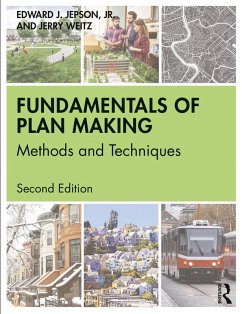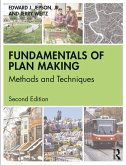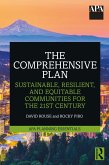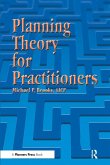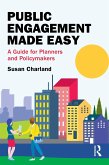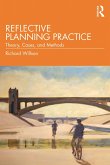In this revised second edition, Edward Jepson and Jerry Weitz bring their extensive experience as practicing planners and teaching faculty to give planning students the practical, hands-on tools they need to create and implement real plans and policies. With an entirely new census data set, expanded discussions of sustainability and other topics, as well as new online resources-including a companion website-the book is now more accessible and more informative, and its updated chapters on transportation, housing, environment, economic development, and other core planning elements also make it a handy reference for planning practitioners.
Dieser Download kann aus rechtlichen Gründen nur mit Rechnungsadresse in A, B, BG, CY, CZ, D, DK, EW, E, FIN, F, GR, HR, H, IRL, I, LT, L, LR, M, NL, PL, P, R, S, SLO, SK ausgeliefert werden.
"The second edition of Fundamentals of Plan Making is a careful update of the go-to source for how and why to create an effective comprehensive plan. Ed Jepson and Jerry Weitz have added new data sources, tables, and illustrations. New sections on cost benefit analysis, sustainability, transportation options, and complete streets make the book especially timely for students and practitioners." -Tom Daniels, University of Pennsylvania
"As an instructor I am always on the lookout for instructional texts that effectively apply methods and techniques to planning and plan making. Jepson and Weitz do just this by taking a comprehensive and practical approach to the skills needed in planning practice. I applaud this work and I'm very pleased to see the updates that have been incorporated throughout." -Tom Sanchez, Virginia Tech
"Despite all the alternative theories about where planning might go or should go, developing and writing comprehensive plans remains at the core of the urban planning profession. Jepson and Weitz have done planning practitioners, students and scholars a considerable service: They have carefully distilled and articulated a broad range of key planning tools, methods, and resources. The result is a comprehensive, practical and up-to-date handbook that serves as a valuable one-stop guide." -Scott Campbell, University of Michigan

